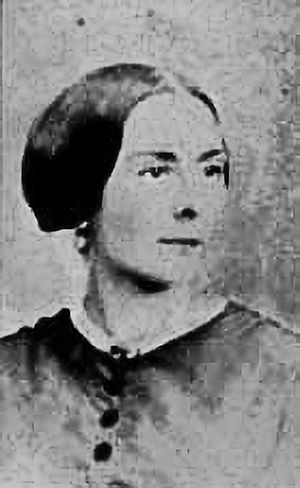Ottilie Assing facts for kids
Quick facts for kids
Ottilie Assing
|
|
|---|---|
 |
|
| Born | 11 February 1819 |
| Died | 21 August 1884 (aged 65) Paris, France
|
| Nationality | American, German |
| Occupation | Feminist, freethinker, abolitionist |
Ottilie Davida Assing (born February 11, 1819 – died August 21, 1884) was an important writer and activist. She lived in the 1800s and was from both Germany and America. Ottilie was known for being a feminist, a freethinker, and an abolitionist.
- A feminist believes that women and men should have equal rights and opportunities.
- A freethinker is someone who forms their own opinions based on logic and facts, rather than just accepting traditional beliefs.
- An abolitionist worked to end slavery, especially in the United States.
Early Life and Family
Ottilie Assing was born in Hamburg, Germany. Her mother, Rosa Maria Varnhagen, was a poet. Her father, David Assur, was a doctor who changed his name to Assing. He was originally Jewish but became Christian when he married.
Ottilie's mother was friends with many other writers and people who wanted social change. Her aunt, Rahel Varnhagen, was also famous for hosting gatherings where important thinkers met.
After her parents passed away, and a big fire hit Hamburg in 1842, Ottilie and her sister Ludmilla went to live with their uncle, Karl August Varnhagen von Ense. He was a well-known writer and activist. Ottilie and Ludmilla did not get along well in his home, so Ottilie left and never returned.
Moving to America and Her Career
In 1852, Ottilie Assing moved to the United States. She first lived in New York City and later in Hoboken, New Jersey. She earned money by writing articles for a German newspaper called Morgenblatt für gebildete Leser. Sometimes, she used a male name when she wrote.
At first, she wrote about general topics like culture. But soon, her writing focused on the movement to end slavery. She wrote hundreds of articles. Through her work, she helped people in Europe understand the abolitionist movement and what life was like in the United States where slavery existed.
Ottilie read a book called Narrative of the Life of Frederick Douglass. She was very impressed by it. In 1856, she traveled to Rochester to meet Frederick Douglass, who was a famous former slave and leader in the abolitionist movement.
They became friends right away. Ottilie suggested she translate his book into German. For the next 28 years, they attended many meetings and events together. She often visited his family and sometimes stayed in their home for months. Ottilie translated Douglass's books for German readers. She also helped find a publisher for his book My Bondage and My Freedom in Germany in 1860.
Later Life
Ottilie Assing passed away in August 1884, at the age of 65.
Her Writings
Ottilie Assing wrote many articles and a biography. Here are some of her notable works:
- Jean Baptist Baison. A Biography, 1851
- She translated Frederick Douglass's autobiography, Slavery and Freedom, into German in 1860.
- She wrote many articles and political reports for newspapers like Telegraph for Germany and Morning Journal for educated readers.
- Her reports from America and letters to Frederick Douglass were collected in a book called Radical Passion.
See also
 In Spanish: Ottilie Assing para niños
In Spanish: Ottilie Assing para niños
 | Selma Burke |
 | Pauline Powell Burns |
 | Frederick J. Brown |
 | Robert Blackburn |

